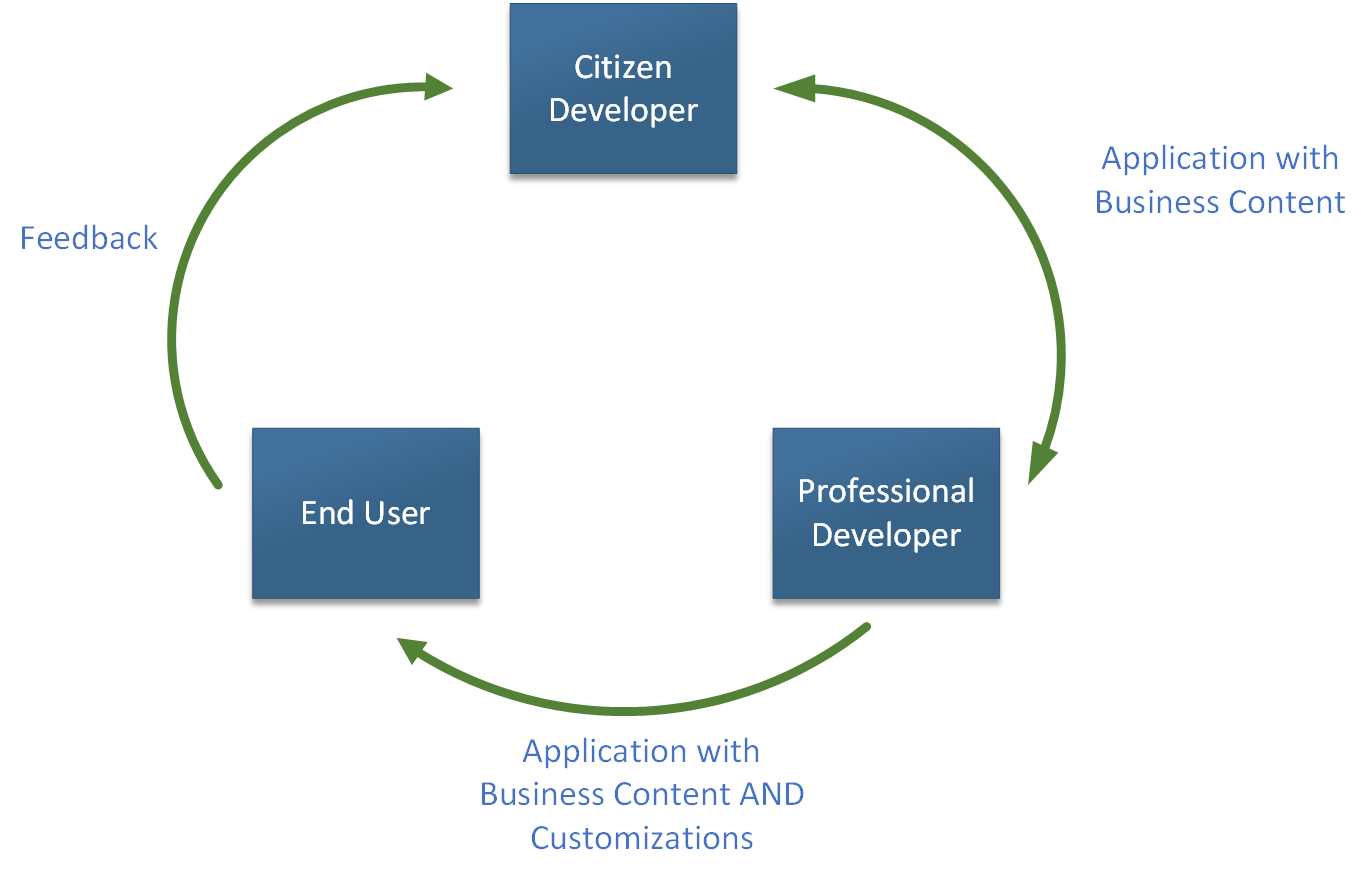Rise of the Citizen Developer
Citizen developers turn business insight into action, allowing smarter, user-driven applications. By uniting end users, citizen developers, and professional developers, it’s where collaboration meets innovation. We are about to witness the Rise of citizen developer.
Introduction to citizen development
The way we approach software development is changing. Traditional methods, which rely heavily on professional developers, have served us well but often create bottlenecks. Business users—those who know the processes and challenges best—are left waiting for solutions that take months or years to develop.
This is where citizen development steps in. A citizen developer is someone within the organization who may not have formal software development training but uses tools like LeBLANC to create applications that solve business challenges. These individuals come from various backgrounds, often working in roles like operations, finance, or product ownership. Their technical know-how is matched by their deep understanding of the business, enabling them to create solutions that truly address the organization’s needs.
Citizen development doesn’t replace professional developers but complements their work, empowering a wider group of people to contribute to the development process.
And in many ways, isn’t this what agile development originally promised? To bring business experts into the heart of the process, ensuring their input shapes the solutions? Citizen development fulfills that vision, giving them the tools to take an active role in creating the applications they need.
Citizen developer as part of the development process
Citizen developers play a key role in making software development more collaborative and efficient. They don’t replace professional developers but bring a unique perspective that ensures solutions address real-world needs.
This is how the process works:

- End users: These are the people who use the system every day. They’re the first to spot inefficiencies or opportunities for improvement and provide the initial spark for a solution.
- Citizen developers: Acting as the voice of the business, and the bridge between business and IT, citizen developers take feedback from end users and create applications using LeBLANC. They focus on the business content, data and processes, crafting prototypes that align closely with the business’s needs.
- Professional developers: Once the business content is in place, professional developers enhance it with advanced functionality, ensuring it’s secure, robust, and scalable for long-term use.
This process is iterative, with feedback loops between end users, citizen developers, and professional developers keeping development agile and responsive. Citizen developers collaborate with both groups to refine and adjust the solution as it evolves.
The combination of input from end users, practical design from citizen developers, and technical expertise from professionals leads to better applications, faster development, and a more aligned result.
The benefits of citizen developer involvement
Citizen developers bring immense value to the software development process, as the voice of the business, and LeBLANC is built to support and enhance their role. By leveraging LeBLANC’s tools, methods and the AI, businesses can take full advantage of the knowledge and insights citizen developers offer while maintaining a seamless and iterative development process.
How LeBLANC supports citizen developers
-
Simplified design and iteration
LeBLANC’s approach is designed to simplify application development, making it accessible to non-developers. During the design phase, citizen developers work in short iterations: gathering requirements, modeling data, deploying prototypes, and evaluating results with end users. This iterative process ensures applications evolve in real-time, based on feedback and actual business needs.
For instance, LeBLANC allows users to model data and processes directly in the system. Over 80% of a business application involves viewing, inputting, and manipulating data. With LeBLANC, citizen developers can create the right data models and instantly generate functional applications for evaluation, ensuring early feedback and continuous refinement.
-
AI assistant to accelerate design
The LeBLANC AI assistant bridges the gap between ideas and implementation. With its "describe to build" functionality, it helps citizen developers convert natural language descriptions into working components. Business users can describe their data, processes, and goals, and the AI generates models and workflows to match.
By simplifying the technical aspects, the AI assistant allows citizen developers to focus on refining user experiences and designing applications tailored to business needs, saving time and reducing complexity.
-
Iterative design for real-world use
LeBLANC’s iterative design philosophy is perfectly aligned with how citizen developers work. By building small, functional pieces of the application, deploying them to a live environment (referred to as the "farm"), and gathering feedback from end users, the team can ensure the solution evolves organically.
This process is supported by tools like the Designer Requirements and Designer Entities features, which help teams organize data models, roles, and use cases. These tools guide citizen developers in making the right design decisions, such as determining the fields and relationships in the data model, defining user dashboards, and mapping out processes for each role.
-
Collaboration between roles
LeBLANC makes it easy to collaborate across different roles:
- Requirements engineers gather and log requirements into shared project tools.
- System designers refine the requirements into data models and functional designs.
- Subject matter experts from the business provide continuous feedback, ensuring the application aligns with user goals.
- Professional developers step in when advanced customizations or scalability enhancements are needed.
This collaborative environment ensures that citizen developers can contribute effectively while still benefiting from the technical expertise of the development team.
-
Real-time evaluation with working applications
One of LeBLANC’s most powerful features is the ability to generate fully working applications early in the process. Instead of long requirement documents or abstract prototypes, end users can log into the application, test it, and provide real feedback. This hands-on approach improves communication and helps refine ideas much faster than traditional methods.
Citizen developers bring immense value to the software development process, and LeBLANC is built to support and enhance their role. By leveraging LeBLANC’s tools and methods, businesses can take full advantage of the knowledge and insights citizen developers offer while maintaining a seamless and iterative development process.
Rise, citizen!
Citizen developers aren’t just an additional resource—they’re a way to make development smarter, faster, and more collaborative. Their involvement ensures applications are aligned with business needs and built with the user in mind. Tools like LeBLANC empower these individuals to create meaningful solutions while professional developers provide the technical expertise to take those solutions to the next level.


